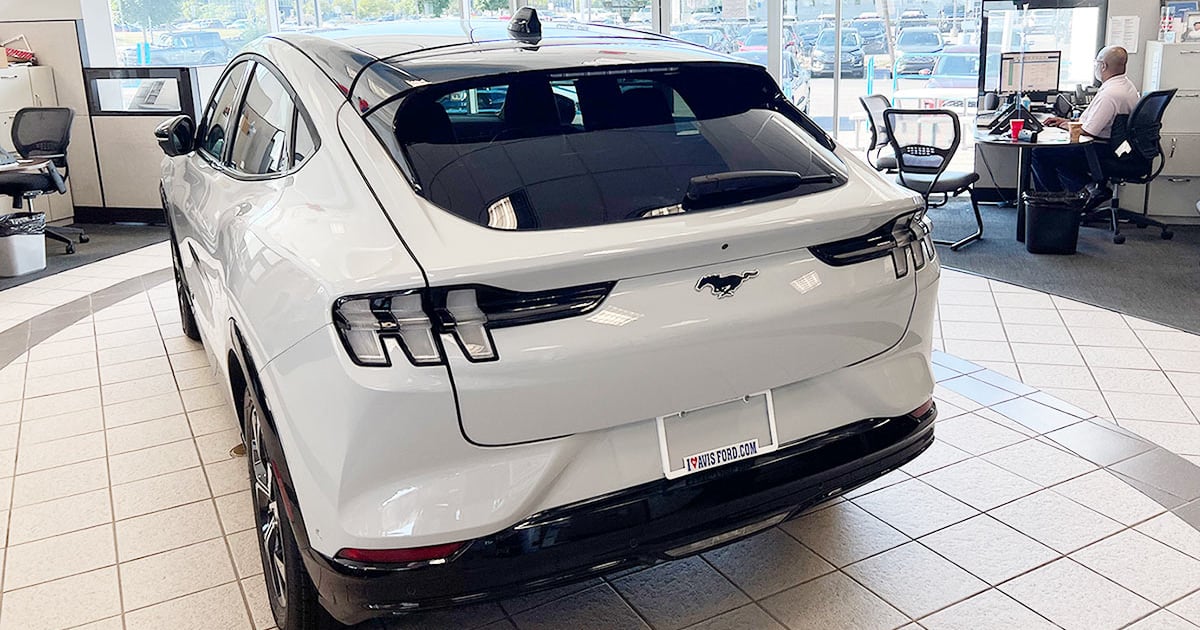
Ford is working with its dealer council on changes to its electric vehicle certification program in response to arguments from state associations that it’s unfair and breaks franchise laws, according to the brand’s council chairman.
The changes would include narrowing the differences between the program’s two tiers, one of which limits EV sales in exchange for a reduced investment in charging equipment.
Tim Hovik, who leads the Ford National Dealer Council, said in an interview this month that the two sides are entering the NADA Show on the cusp of altering three major aspects of the program, which has drawn rebukes from dozens of U.S. state dealer associations and prompted legal action even as two-thirds of Ford’s retail network agreed to adhere to the standards.
The ongoing dialogue — and potential changes — highlight the strategic differences between Ford and some of its rivals in terms of preparing retailers for the future. Ford dealers have options in terms of how much they can invest and are allowed to remain with the brand even if they choose not to sell EVs. Other brands, namely Cadillac and Buick, require dealers to give up their franchise if they don’t agree to spend hundreds of thousands on chargers and other EV tooling.
“I’m confident we’ll come to a place where all sides feel we’re fair and within the boundaries of the franchise laws and in a position where Ford can compete and win and where our customers can be put in a position where they have a level of service that is industry-leading,” Hovik said. “We’re on a really good path right now.”
Hovik said Ford is considering dialing back a requirement for dealers to offer round-the-clock public EV charging.
Additionally, the brand is looking to change certain marketing-related benefits that “certified elite” dealerships would receive over those that select the cheaper “certified” tier. As of now, certified stores would not have their EVs listed on Ford.com and would not receive EV demo units.
Finally, Ford may change how future EVs would be distributed. For now, those in the certified tier would be capped at selling 25 EVs per year, although Hovik said the sides are looking to move to a more equitable allocation formula akin to how current models are doled out today.
“I think the formula will end up being similar in numbers to what the cap is,” Hovik said, “but I do think adjusting the allocation formula could give dealers an opportunity to grow, which is really what we want.”
About 1,000 Ford dealers chose not to invest in the EV program; they can remain with the brand but will be limited to selling gasoline-powered and hybrid models. Ford will give those dealers another opportunity to join the program in 2027.
At Cadillac, more than one-third of its 875 dealers took a buyout the brand offered beginning in 2020, bringing the number of U.S. dealerships to about 560, officials have said. Offers generally ranged from $300,000 to $500,000.
The brand since has added three points in New York, Los Angeles and Atlanta, Cadillac spokesman Michael Albano said.
Nearly all dealers who stayed with Cadillac — about 98 percent — have finished meeting their requirements, Albano said. The rest are waiting for chargers or parts to complete installation.
Buick has not shared the number of dealerships that have opted to take the buyout offer.
Those who stay with the brand will need to invest at least $300,000 to $400,000, on average, to sell Buick’s EVs. That minimum investment amount required of dealerships for tooling, training and other equipment is an estimated average and will depend on the individual store.
Giving Buick dealers the option to invest in EVs helped the brand’s dealer council get behind the concept, said Bo Mandal, chairman of the Buick-GMC National Dealer Council.
“Our council was 100 percent behind it — if it was a dealer’s choice,” Mandal told Automotive News. “The whole conversation was only going to happen if it was a dealer’s choice.”